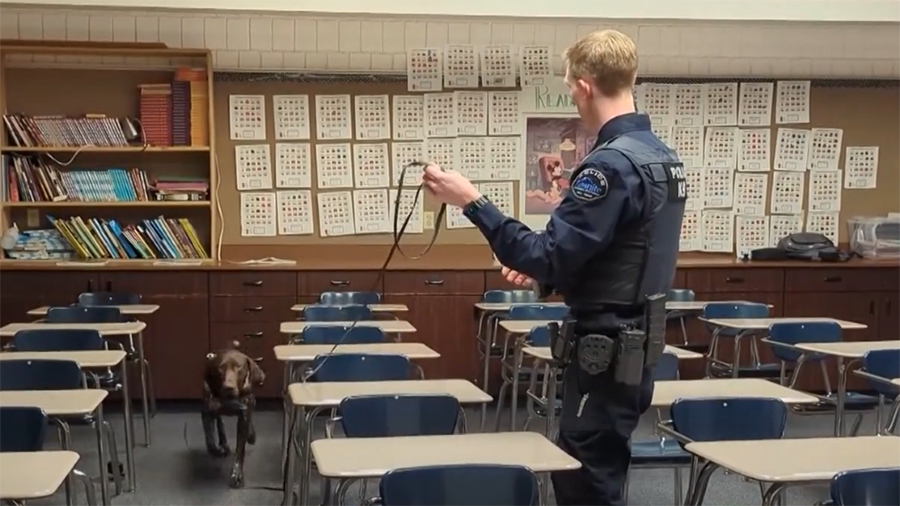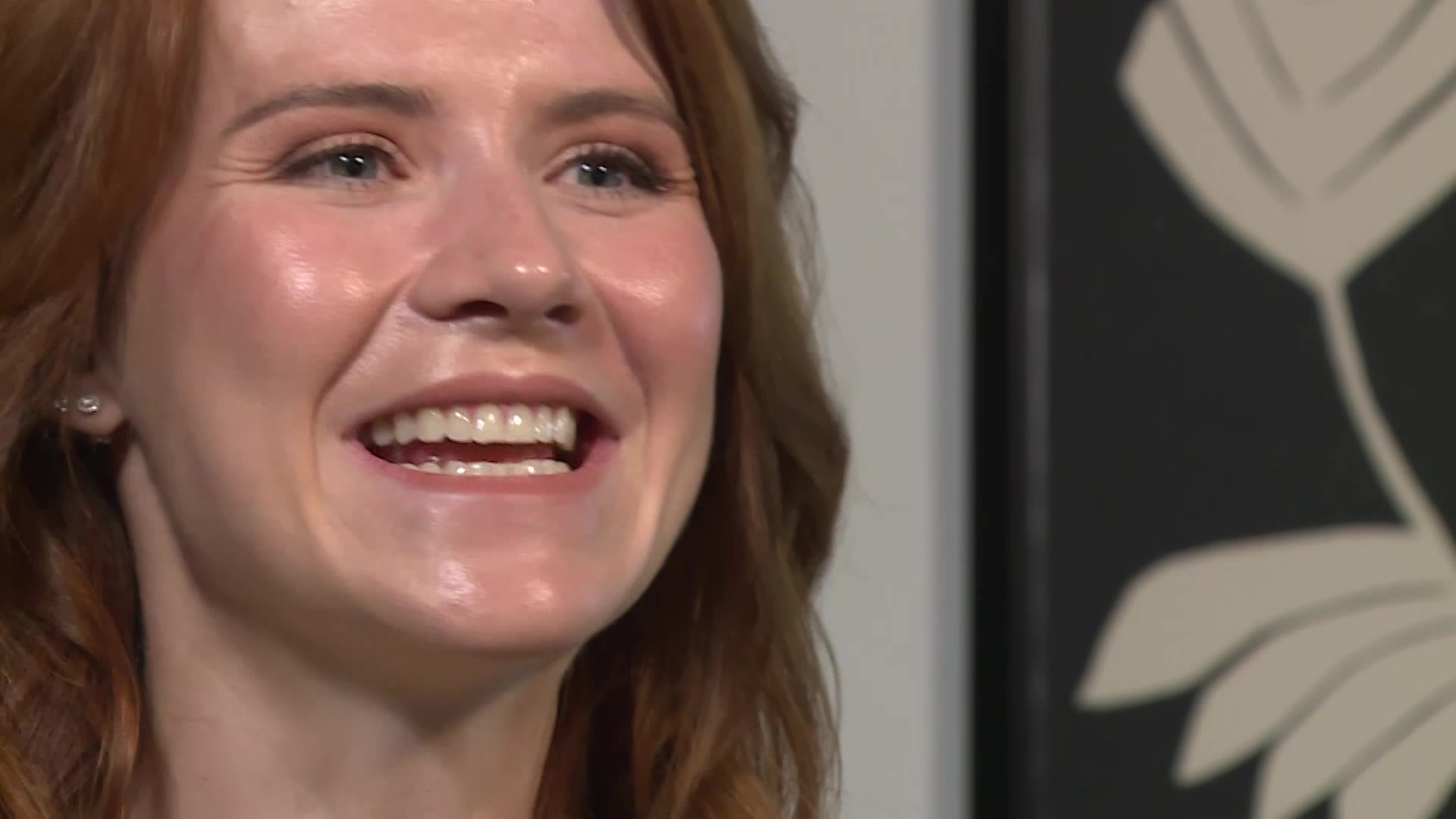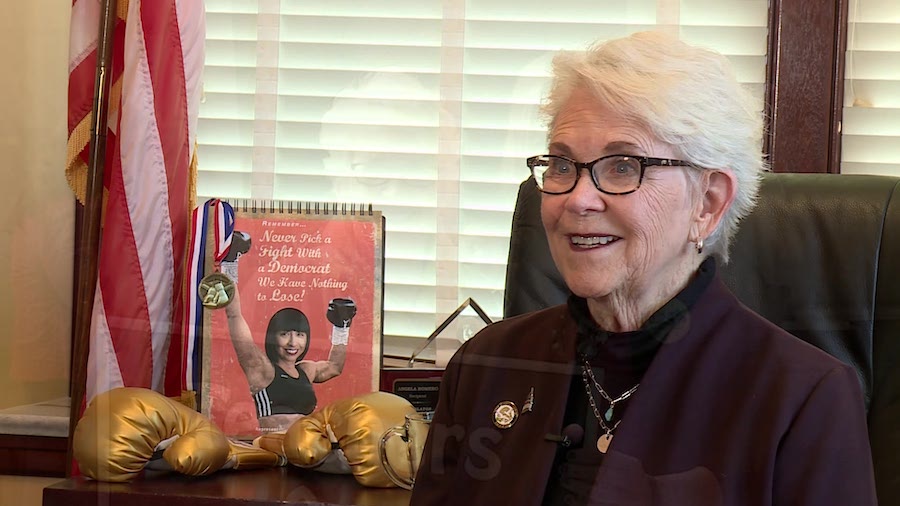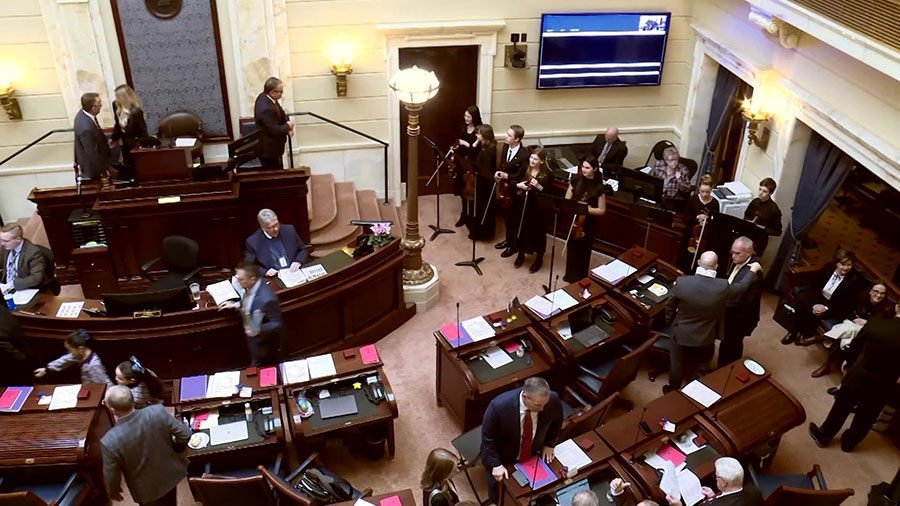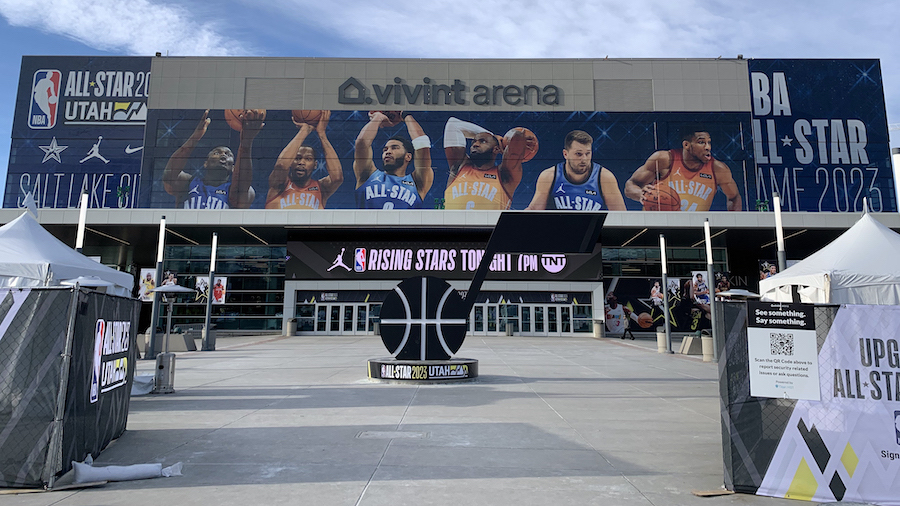KSL+: Sit Down with Dr. Dunn in New Role
Aug 12, 2021, 6:10 PM
Dr. Angela Dunn: I’m nervous about what’s to come in the next several months with COVID.
It’s just unfortunately not over yet. And I wish I could say something different the challenges facing public health and what comes next. That’s what we do as public health professionals is definitely try to prevent rather than react when we know prevention works, then we can save lives. That way. I’m not rescuing here at the Salt Lake County Health Department and this is KSL plus, and The benefits of prevention in this case just far outweigh the risks
Matt Rascon: Today on KSL+ a familiar voice in Utah, we’re talking to Dr. Angela Dunn. Known as the voice of public health over the last year and a half. Today, she is the director of the county health department.
Dr. Angela Dunn: What keeps me up at night at school starting at the start of a new school year, the Delta variant isn’t slowing down.
Matt Rascon: When I sat down with Dr. Dunn, she told me masks were the right answer for kids under 12, who were not eligible to get the vaccine. But we spoke before the Salt Lake County Health Department publicly declared its intent to issue a mask mandate for K through sixth grade students. We are recording this episode before the county council votes on whether to uphold the mandate.
Matt Rascon: There’s already been, you know, school district just in the last couple of days since that guidance was put out from the state saying, well, we don’t have the authority to you know, to put it in a place of mass mandate. Is that that a problem? Or where is the problem?
Dr. Angela Dunn: Yeah, so I mean, we definitely have limitations as a community on our power to do mask mandates from the legislature. So the way that it works is I, as a health officer of Salt Lake County Health Department, can mandate masks, our county council can overturn it immediately with a majority vote, and our legislature can also overturn it immediately. So while I do have the power to issue it initially, it can be overturned immediately. So I’m working with all of our elected officials, but our schools, our superintendents, our teachers, our parents to figure out what that best way forward is. It’s a big decision, right. So we know that mandates worked in the fall. But we also know that we need public buy-in for those mandates, we’re not going to send cops out to schools to enforce it. So if you don’t have public buy in, you might be causing more harm than good. But at the same time, it’s the right health decision have kids in masks that don’t have the opportunity to be vaccinated. We’re really talking about K through sixth grade.
Matt Rascon: As that process unfolds. Dr. Dunn told us why she thinks a mandate, and not just encouragement, is the answer.
Dr. Angela Dunn: Because we know that individuals respond to requirements more than they respond to recommendations. Even those who mean well. I’ll use the Utah Department of Health as an example when I was part of it. But before the governor put in a massive mandate for all state government buildings, nobody at the Department of Health was wearing a mask. Nobody, we knew our risk was low, but it just wasn’t a thing. It wasn’t part of our routine. Literally the day it was required, we all started wearing them. It changes the culture, it signals that this is important, and it is serious. It’s so serious that we are requiring it of our constituents, our clients, our staff, whatever. It really is that clear signal that something is serious. And what’s really important with all requirements is that you reevaluate the data. Is it working? Is it not? Is it still necessary, and you do that on a regular basis. And I’m not saying every year, something like COVID. I mean, we’re looking at it daily, and determining what’s necessary for the next day. And so, it really changes the psychology of individuals to have a requirement versus a recommendation. I will also say, for all of these mitigation measures, they only work if everybody’s doing them because the virus is very good at finding those susceptible people and spreading and so the more we can all band together to either get vaccinated or wear masks, the better off our community will be.
Matt Rascon: You may be most familiar with Dr. Dunn as the state epidemiologist. You heard from her weekly, sometimes daily in 2020, and the beginning of this year, before she jumped into her new role as the executive director of the Salt Lake County Health Department.
New office, new role, new department, what have the last few weeks been like as far as your transition to this new job?
Dr. Angela Dunn: I mean, it’s been so fun and good. As you would expect, anywhere in Utah, but especially Salt Lake County Health Department, people are so welcoming, but also still eager to work and do good. And they’re very passionate. And it’s just amazing the resiliency of the workforce here, given that we’re entering into another COVID surge, but it’s, it’s been a lot of fun.
Matt Rascon: Yeah, even after a year and a half. Mm hmm. Okay. And what is it? What is this new role mean for you and your focus your responsibilities?
Dr. Angela Dunn: Yeah. So when I was the state epidemiologist, my role was really playing that subject matter expert, and just providing input to those who made decisions. Here, I get to apply my expertise to the decisions I make and into the policies that get put in place. And that feels really good to have that direct impact. And that authority to make that direct impact without it being filtered through a lot of other people.
Matt Rascon: I know that in public health, and this is something that you’ve even tweeted about in the last few months, you know, some of the challenges and what this new role would will mean for, you know, other other challenges that you’ll be facing. And including, it was a tweet you said, sent out a little bit ago where it was like something about public health care workers leaving? Yeah, and there needs to be a reason for them to stay. Officials need to be there to support and, and provide that incentive.
Dr. Angela Dunn: Yeah, absolutely. I think the morale of the public health workforce nationally, but I see it even locally here at the Salt Lake County Health Department is, is pretty low, because we’ve been through a lot in the past 18 months. And unfortunately, this pandemic has pitted politics against public health. And that doesn’t need to happen. But that’s happened everywhere. I’m in in order for our workforce to find a reason to come back. They need to feel heard, they need to be at the table when decisions are made. And they need to have that platform to give the right data and recommend what’s best for the public’s health. And I’m in that position to make sure that happens, which is great.
Matt Rascon: There were some workers, of course, that even you know, got some pushback and backlash from the public over the last year and a half, including you had your own experience. What has that experience taught you, you know, with people actually come to your home to protest?
Dr. Angela Dunn: So it really does speak to that need for government in general, but public health specifically to regain the trust of the public. I think people who get so emotional and angry about some of the public health recommendations are truly misinformed. And so we need to do a better job of connecting with individuals who don’t trust us so that we can become that trusted voice again. We’re not full of misinformation or disinformation and, and we can provide them with the facts. That’s going to be on us over the next several years to regain that trust. Public Health now has a voice and a platform. I mean, people didn’t know what is what an epidemiologist was before this, they couldn’t even say it at the beginning of the pandemic. And so this is a great opportunity for public health to elevate everything we do. We definitely are about disease response and outbreak prevention, and helping people stay alive. But as I’ve been here, the past several weeks, I’ve met with all of our divisions and learn more about what they do. And I’ve even surprised about the breadth of the things that go on here, everything from pool inspections, to car inspections to make sure that the emmissions are okay to, you know, working with pregnant mothers who need some help or breastfeeding clinics. And then of course, the disease response. It’s just a broad array of individuals who are coming together that collectively make our community healthier, which is fantastic.
Matt Rascon: Yeah. And speaking of community, how would what would you say is the best thing that Salt Lake Community or even you know, the state can do to support what happens here?
Dr. Angela Dunn: I mean, I definitely think part of it is continuing to prop public health up and not strip us down. So you know, making sure that our funding is still adequate. I think, before COVID Public Health has always been underfunded. That’s why we have such short staff. And we’re not able to do as much as we could, if we had a bigger budget and more staff. So that’s piece of it. And with all this federal funding coming in public health, we’ll be able to show how effective we can be. Because we’ll have that ability to create the infrastructure. So the community of public need to know what their public health department does for them. And I’ll be working with my communications team here to get that word out, to start advocating and marketing essentially what our health department does for the community so that they can understand where their taxpayer dollars are going and how to advocate for public health moving forward, it just helps them get more engaged in the process.
Matt Rascon: Are there other things, other challenges that you’re anticipating in this new role moving forward?
Dr. Angela Dunn: You know, I, when I look at it, I mean, this is gonna sound cheesy, but it really do look at it as a lot of opportunity moving forward, Salt Lake County Health Department serves the largest population in terms of local health departments throughout the state, we also have a very supportive mayor and county council that will help us move public health board in terms of being innovative, and serving all of our populations throughout the county. And we have that diverse set of communities here. So we have a really big opportunity here to move public health into the future and help us be more modern. And that will set the stage for the rest of public health and Utah to do the same. So I think it’s a great opportunity here.
Matt Rascon: When it was announced that you’d be moving into this role, I think it was April or May. And it was around the time where you thought Oh, COVID is just about over, we’re getting out of this, you know, they were like lifting the mandates. And, you know, you know, school was getting out, and things were opening up. And there was a lot of talk of Oh, yes, Dr. Dunn is gonna come in and kind of lead the post-COVID world.
Dr. Angela Dunn: I know, those were the good old days, honestly. But it is still I feel really good to be here. Even in this moment. Even if I wasn’t expecting to deal with COVID. Again, in this way. Again, we have the ability to be really flexible and agile at the local health department to respond to specific needs. And it’s been really fun to watch our staff work and, and do that so well. But we are all excited to move past COVID and start working on addressing needs beyond infectious disease here.
Matt Rascon: Yeah. Well, for a moment, I’d like to talk a little about COVID. Okay, you mentioned a surge in cases. I don’t know what’s different about right now than before.
Dr. Angela Dunn: Okay, so we’ll start with the good, the good is that we’ve got a silver bullet, we’ve got the vaccines, they work. I mean, that’s amazing that we have that ability to actually stop the spread of COVID. Right now, with an effective vaccine. I think the challenges are, of course, the variants that are circulating and coming towards us, you know, as, as COVID, spreads more, the virus can spread more. And so what keeps me up at night is school starting, and the fact that 20% of our population is ineligible to be vaccinated because they’re under the age of 12. And most of them are going to be in an indoor crowded setting come fall, just in two weeks. And we know that’s how COVID spreads. So I’m nervous about what’s to come in the next several months with COVID.
Matt Rascon: Why the push back to masks?
Dr. Angela Dunn: So it’s really important that we still are persistent with our ability to use masks to prevent the spread of COVID. Because our kids aren’t vaccinated yet, and they can’t get vaccinated. So while it is important for everybody to be wearing masks at this point, I really like to focus on the kids who are ineligible for vaccination. Last fall, we were all in masks, because none of us were vaccinated. And in Salt Lake County after the mask mandate, our cases plummeted. We know it works, it stops the spread. So we need to apply that same line of thinking to our kids under 12, when they go back to school to prevent the spread of COVID. And that’s going to keep them in in-person learning. Online just doesn’t work as well, for most kids under 12. We need them in person. And to do that they need to be healthy. And unfortunately, we’ve still got COVID in our communities at really, really high levels higher than last fall. We are entering the school season with more cases, a higher case rate than we did last year. And so we need to really take the lessons learned from last year and apply them here. I just don’t know why we wouldn’t.
Matt Rascon: Thinking back to this last school year. I mean, we were covering pretty consistently middle schools and high schools closing down because of case counts. I don’t remember elementary schools really being impacted as much.
Dr. Angela Dunn: No, they did fantastic. And I will tell you, it’s because they had so many mitigation measures in place. So in addition to kids being in masks, they were socially distanced. They were in cohorts. They were able to really just be around a few people at a time. We also didn’t have extracurricular activities. I mean, there was a lot of community prevention measures going on then too. But moving into this fall, what’s different is the fact that we have a lot more community spread than we did last year. And we’ve got a Delta variant that spreads quicker. And now is showing that it causes more severe disease, even in our younger populations. So we’re really in a different situation than we were in the fall with once again, a lot of unknowns,
Matt Rascon: Talking about all this with, you know, the debate over, you know, should we put in place a mask mandate, and, you know, getting public buy in having support from elected officials. There are so many voices, I mean, of course, social media is full of them, but also just within public health, you know, CDC is recommending this, and then some that the local level, you know, there may be a different focus or emphasis, you know, their primary care doctor may, there may be something else. And I remember that sort of being the case at the beginning of the pandemic, especially when it came to masks, because initially, it was sort of, let’s leave them for the health care workers. Yeah. And I don’t know, what are we going through this, again, just with masks and people vaccinated? And, you know, because there seems to be a lot of different voices go in different directions, you know,
Dr. Angela Dunn: I think this is going to happen every, anytime, there’s a lot of unknown and what’s giving us the unknown now is the changing of the virus, right. We have this sweet spot where we pretty much knew what was going on with the biology of the virus. And we had low cases in the end of the spring, the early summer, and we all felt good, and, and then it mutated. And now we’re learning all over again, of how well do masks work. You know, are there breakthrough cases with vaccines? Can somebody who’s vaccinated transmit the virus? So once again, there are unknowns and the science is changing. And you’re just going to have that kind of conflict of information, perhaps between different groups before we have, you know, months and months of data. But what I do know, and what is clear, is that masks do prevent those droplets from spreading on other people. And that lowers the risk of somebody getting COVID if they’re not vaccinated tremendously. And the risks of actually wearing a mask for most people are so low that we should take the benefits of it at least for the next several months until those under 12 can get vaccinated.
Matt Rascon: The science is changing. I think people hear that and think, Oh, well, it just changes to whatever they want us to do. How would you describe that, I guess, in a different way that we’re getting new information.
Dr. Angela Dunn: So you want your health officials to be on top of the latest science, and tell the public immediately when it does change. Otherwise, that means we’re hiding information that could potentially save lives. And so it’s really important that we have the political will to say that things have changed. What we knew before is not what we know now, and the lessons we had in place before or not the interventions we need. Now. I mean, you the public should want that and feel comforted by a scientist or a Health Officers ability to say you know what things have changed, we need to do things differently. I also want to say that, there’s no ulterior motive from a public health professional or a scientist to promote recommendations, all health officials, all physicians, all we’re trying to do is give people the best information at their hands so they can make the best decision for themselves and their families. And we really don’t have any other motive. And so there’s no reason not to trust at looking at where we are now.
Matt Rascon: I don’t know if there is a fixed timeline on when we could peak, you know, and everything. But what keeps you up at night?
Dr. Angela Dunn: Definitely opening schools. And I think the other thing is how quickly we’re going to peak. When we look at the UK, they peaked with Delta a couple of months ago, and it was a really high and really sharp peak much quicker than the other variant because it’s so transmissible. And so it is possible that that we have a surge in cases for a couple months, and then with the increasing vaccination, it drops. But while that is good news, what happens during those couple months of the surges, right? Our hospitals are already overcapacity. What’s going to happen with those who need care both for COVID and other things? How many children are going to have to be hospitalized and have long term effects? Anything we can do to prevent that is really the way forward for the next few months. But getting that public and political will On board? Is really tough right now.
Matt Rascon: Yeah. Do you see vaccine boosters in our future?
Dr. Angela Dunn: Right. I mean, who knows? I mean, that’s one of those things where the science is different. You know, you look at different studies and some show immunity for a long time. Israel is now showing, you know, maybe not so long. When it comes down to it, time will tell. I think it is likely that with how much change in the virus, we’ve seen that a booster may be necessary moving forward. But right now, the three vaccines we have are effective against the variants that are circulating. So focus on those who aren’t vaccinated should really get their vaccine. And those who have had it, you know, they can be assured that they’re immune, no.
Matt Rascon: Well, with this, you know, year and a half of the pandemic behind us what, what is going to get us into the post-COVID world?
Dr. Angela Dunn: Vaccination. We are so close. It is so disheartening to see that we’ve stalled out when we’re so close. But I understand that the same time, you know, the individuals who are left to get vaccinated are those who have, you know, legitimate concerns and questions and it might take a little longer for them to get them all answered, to make them feel comfortable to get vaccinated. So we just will be persistent and resilient and keep giving people the information they need to make the decision on whether or not they get vaccinated.
Matt Rascon: Well, apart from COVID, what’s your most important role that you have? Sure you’re in public health? Because, you know, everything’s been COVID. But what, what’s beyond that?
Dr. Angela Dunn: Well, first and foremost, is bringing back the energy and morale of the public health staff, right. I mean, it’s been a really hard year and a half and focusing on the needs of the people who are working here is my first priority. Figuring out how I can best support them, make sure people take really big vacations and time off and come back renewed, to do innovative public health work. I think the other piece in terms of the community is, again, rebuilding that trust with our community members in public health, and then focusing more upstream. I mean, this is a great opportunity for public health, to really focus on health equity and social determinants of health,. We have the resources, we have the spotlight on it, we need to capitalize on this moment to really bring our under resourced communities, the need the things they need to be healthy.
I will say that we are prepping right now for a surge in cases. So that means hiring on more contact tracers and testers, and it is increasingly difficult to find really qualified applicants to take public health work and to take public health jobs. So it’s a tough time to be hiring anybody to come into public health because it is still wrought with so many political views. And and as we saw this week of the county council, you know, the public negativity as well. So it is challenging. Still, we do have some vacancies that need to be filled here at the county in order to take the workload off others. So we’re working towards that. But it is hard.
Matt Rascon: If we could just broadcast this live, you know, everyone turns on the TV, everyone’s forced to watch this one message from Dr. Dunn, who was over the last year and a half sort of known as the voice of public health. And the pandemic, what would you say?
Dr. Angela Dunn: Right now, we are in the middle of another surge of COVID cases where those under 12 have no ability to protect themselves. So it is incumbent upon all of us as adults, to take that responsibility, get vaccinated to protect those who can’t, and also have our kids wearing masks and social distancing as much as possible. It’s not forever. It really is just for a few more months, but we can’t give in now or give up now, because that’s to the detriment of those under 12. And they deserve better. It’s just unfortunately, not over yet. And I wish I could say something different, but it’s not. And I don’t want to see children die unnecessarily because of this.


